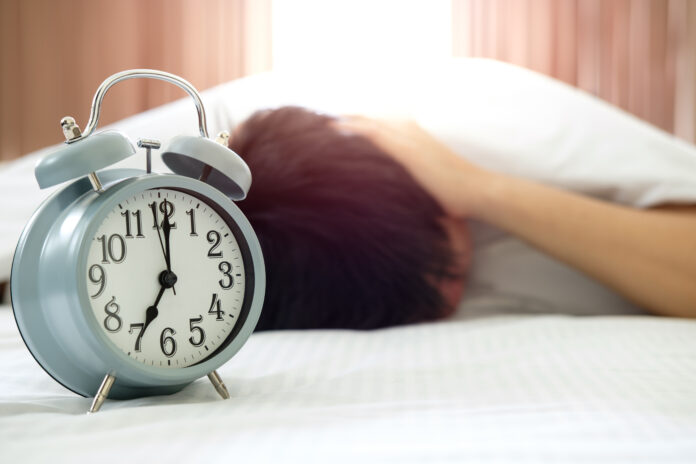Researchers link disturbed sleep, characterized by unconscious wakefulness, to an increased risk of cardiovascular disease and death in women.
Our sleep is commonly comprise of periods of unconscious wakefulness, called cortical arousals. They, most often, occur spontaneously; however, at times can also occur because of obstructed breathing, pain, noise, limb movements, light, temperature, and trauma. This disturbed sleep can then affect a person’s blood pressure, heart rate, and overall cardiac health. Moreover, previous research has shown it to increase a person’s risk of death from cardiovascular causes. But it is unclear whether the duration and number of arousals during a night’s sleep can affect the risk of dying. It seems a study, published in the European Heart Journal, may have finally found an answer.
Depending on the strength of the arousal, a person might become consciously aware of the environment, but often that is not the case. Typically, people will feel exhausted and tired in the morning because of their sleep fragmentation but will not be aware of the individual arousals.
Dominik Linz, study author
The team of researchers recruited around 8000 men and women as part of three different studies: Osteoporotic Fractures in Men Sleep Study, Study of Osteoporotic Fractures, and Sleep Heart Health Study (SHHS). The participants had a mean age of 64-83 years and 38% were female. Each participant was followed up for an average of 6 to 11 years.
Sleep monitors, worn overnight by the participants, helped the researchers measure the arousal burden (frequency and duration of the wakefulness). Along with the polysomnography, patients also provided information on their medical history and smoking habits.
Double the Risk
The results showed that women with a high arousal burden had almost double the risk of dying from cardiovascular diseases than the general female population. Although, women had less arousals than men, mortality rate was higher amongst them. The increased risk of death remained despite adjusting for other factors such as BMI, smoking habits, age, and medical history.
However, it is unclear as to why there’s a gender difference between the results. Authors of the study suggest that the triggers causing disturbed sleep in women likely result in a coping mechanism different from that of men. Moreover, women may have a higher threshold for nocturnal awakenings; resulting in a higher trigger burden compared to men.
For me as a physician, a high arousal burden helps to identify patients who may be at higher risk of cardiovascular disease. We need to advise our patients to take care of their sleep and practice good sleep ‘hygiene’. Measures to minimise noise pollution during the night, lose weight and treat sleep apnoea could also help to reduce the arousal burden.
Dominik Linz, study author
It’s important to note that the majority of the study participants were older and majorly white. Therefore, the results cannot be generalized to younger people or those of other races. Nevertheless, the study provides strong evidence for the importance of sleep quality and its impact on our cardiovascular health.
Reference:
Sobhan Salari Shahrbabaki, Dominik Linz, Simon Hartmann, Susan Redline, Mathias Baumert. Sleep arousal burden is associated with long-term all-cause and cardiovascular mortality in 8001 community-dwelling older men and women. European Heart Journal, 2021; DOI: 10.1093/eurheartj/ehab151




